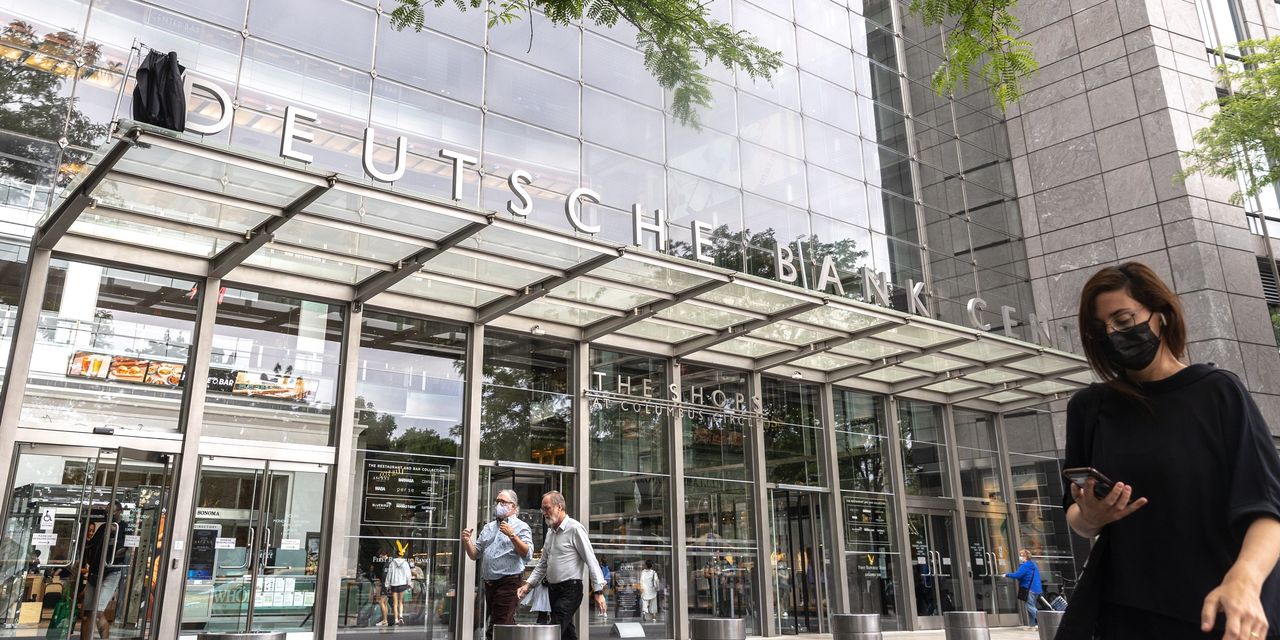Deutsche Bank AG
DB 2.00%
said its third-quarter net profit rose as lower bad-loan charges helped offset a fall in investment banking revenue and additional costs for its overhaul.
Still, the German lender said it is on track to meet ambitious financial targets next year, a key test for Chief Executive Officer Christian Sewing, who in 2019 vowed to make the bank leaner and more profitable following years of broken promises from his predecessors.
Investors seem to be increasingly convinced and recently both Moody’s and Fitch upgraded Deutsche Bank’s ratings.
While the pandemic could have thrown Mr. Sewing’s plans off course, in some ways it actually helped. Like other global banks, Deutsche Bank saw its Wall Street businesses thrive over the past year as companies and investors tweaked their investments and raised money. It also benefited from being based in Germany, where the government spent hundreds of billions to keep the economy afloat, resulting in fewer souring loans.
Deutsche Bank posted a 2% rise in revenue to €6.04 billion, the equivalent of $7 billion. Net profit for the three months ended Sept. 30 rose 6% to €329 million. Its net profit was higher than an average consensus from analysts of €280 million.
Revenue from investment banking dropped 6% in the third quarter to €2.23 billion as client activity began to normalize this year. But the result was higher than analysts had anticipated and the bank said it still expects the business to perform in 2021 in line with last year’s record levels.
Revenue at its asset-management division rose 17%, while it stayed flat at its corporate banking and was slightly down in its retail franchise.
Like other European banks, Deutsche Bank’s bread-and-butter business of taking deposits and lending has faced intense pressure from an environment of negative interest rates. Recent inflation has put pressure on the European Central Bank to begin raising rates sooner than expected to cool the economy, but the central bank has signaled it is reluctant to do so and believes higher prices are temporary.
Deutsche Bank has been able to offset some of the pressure from low rates by charging deposit fees to corporate and retail customers who hold a lot of cash at the bank. It has also tried to convince them to shift money from their bank accounts into investment accounts that charge fees.
Customers have also weathered the pandemic better than expected, keeping a lid on souring loans and losses for the lender. In the third quarter, the bank set aside €117 million to cover for bad debt, down from €273 million a year earlier.
The ECB, which also supervises Europe’s largest lenders, recently warned banks aren’t out of the woods yet because customers could start facing trouble as government support is withdrawn. But with economies recovering, few see a reason to worry about big increases in bad debt.
More challenging for the bank has been controlling costs.
In the second quarter, the bank dropped a specific 2022 cost-cutting target following unexpected regulatory levies that threw off its calculations. To counter the higher expenses, it said it would look for cuts elsewhere.
In the third quarter, the bank said it took some charges related to moving some of its systems to the cloud. As a result, costs were 4% higher at €5.37 billion. It posted a cost-to-income ratio of 88.9%, compared with a 70% target for 2022.
Write to Patricia Kowsmann at patricia.kowsmann@wsj.com
Copyright ©2021 Dow Jones & Company, Inc. All Rights Reserved. 87990cbe856818d5eddac44c7b1cdeb8













































